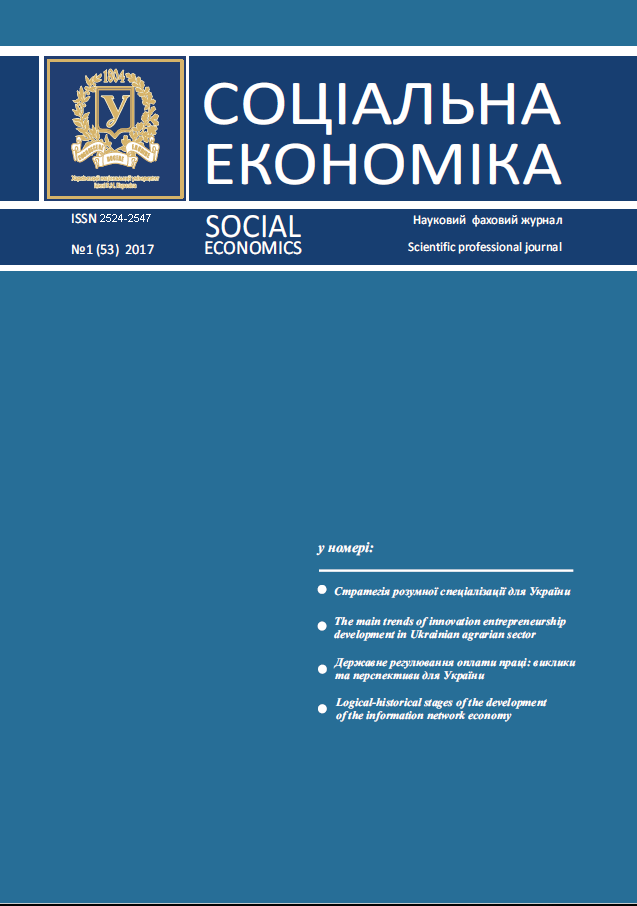Prospects for development of smart specialization in kharkiv region
Abstract
The article provides an author's interpretation of the concept of smart specialisation (3S). An analysis of the development of smart specialization in the European Union is conducted. The importance of the influence of smart specialization on the development of the links between science, education and economics in the regional context and its importance in ensuring the optimal use of the potential of individual regions and countries in the context of adaptation to specific socio-economic conditions were noted. The main directions of implementation of the smart specialization as an integrated economic program in accordance with the innovation policy of “European Strategy 2020” are determined. The problem of realization of smart specialization in the Kharkiv region is revealed and the methods of its solution are given. Particular attention is paid to the processes of analysis and evaluation of innovative potential as key processes for the preparation and implementation of a strategy for smart specialization. In this case, the focus is on analyzing the needs and barriers of small and medium-sized enterprises in innovation, as well as assessing the promotion of the infrastructure of the region to introduce these innovations into production. Accordingly, it is determined that the task of smart specialization is to achieve maximum efficiency and utility for all subjects of the region. Particular attention is paid to the fact that the concept of smart specialization has several disadvantages. The article underlines such a disadvantage as the danger of concentration of the development of modern technologies in the most developed regions, which can lead to a large polarization of the regions.
Downloads
References
European Commission. Guide to research and innovation strategies for smart specialisation (RIS3). – Brussels, 2012. – 27 pp.
Brzóska J., Pyka J. Rozwój ekosystemu innowacji w Regionie w perspektywie 2020 roku [w:] J. Pyka(red) Nowoczesność przemysłu i usług – nowe wyzwania. TNOiK. – Katowice, 2012.
David P., Foray D., Hall B. Smart Specialistaion. The concept. Knowledge Economists Policy Bries 9, October 2007.
Kardas M. Inteligentna specjalizacja – (nowa) koncepcja polityki innowacyjnej. “Optimum. Studia Ekoonomiczne”. – 2011. – nr 2, WSE, Białystok.
Tobor G. Smart specialisation a rozwój aglomeracji górnośląskiej [w] J. Pyka (red Nowoczesność przemysłu i usług – nowe wyzwania. – Katowice: TNOiK, 2012.
Guide to research and innovation strategies for smart specialization (RIS3). Luxemburg, 2012 [Електронний ресурс]. – Режим доступу : http://ec.europa.eu/regional_policy/sources/docgener/presenta/smart_specialisation/smart_ris3_2012.pdf.
Hall BH., Trajtenberg M. Uncovering general purpose Technologies with patent data, [w:] New frontiers In the economics of innovation and New technology: esseys In honour of Paul A. David, (eds.) C. Antonelli, D. Foray, B.B. Hall, W.E. Steinmueller, 2007.




